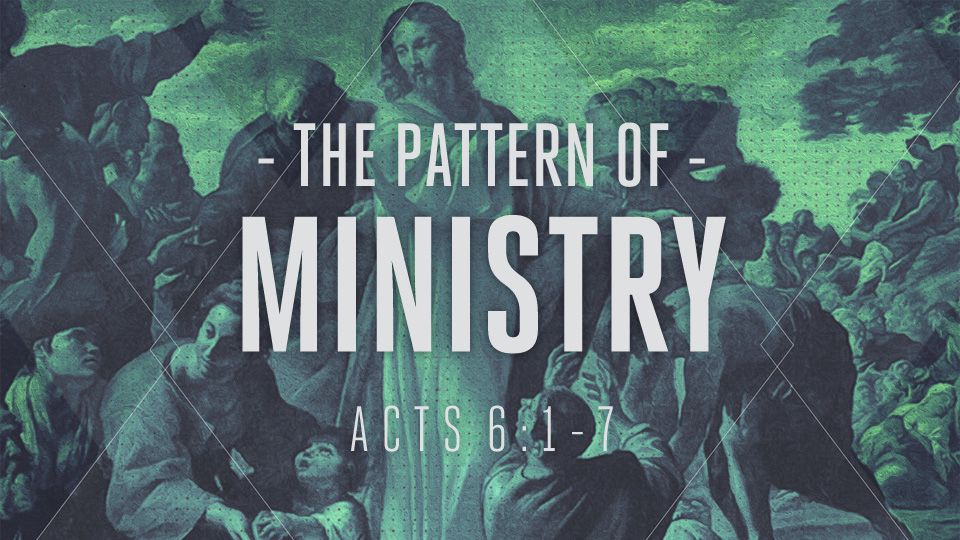“The community of faith will place its confidence only in the simple servant of the Word of Jesus, because it knows that it will then be guided not by human wisdom and human conceit, but by the Word of the Good Shepherd.” – Bonhoeffer, Life Together, 107.
Mother’s Day is Coming
“Amidst the joy, there is often great sadness.”
This coming Sunday is Mother’s Day and churches around the country will think of how they can bless moms. An oft-forgotten reality of Mother’s Day is those who have lost children or are unable to give birth. One way to grieve with those who grieve on this special day is through lament.
A Mother’s Day Lament
In his book Rhythms of Grace Mike Cosper talks about how for the last few years on Mother’s Day his church “has prayed a prayer of lament with those who long to be mothers but feel the pain of childlessness and loneliness.” I’ve regularly used this prayer on Mother’s Day and each year the response is somewhat overwhelming—in a wonderful way.
The section in italics is an introduction to the prayer to be read by a pastor, and the following prayer is one the congregation can read together:
We recognize on a day like today that everything in God’s creation isn’t as it should be. Sin has broken families and caused deep pain and heartache, and suffering in creation has led to suffering in the flesh—some who long to be parents are unable to experience that joy. Let’s pray together, knowing that God hears us in our pain and sadness:
we lift up the aching hearts
of all those who long to be mothers,
who have conceived,
who have given birth,
or neglected on this day of celebration of motherhood.
We pray that they may experience healing in this church family.
How long must joy be deferred or interrupted by such cruel sorrow?
breathe in us all the breath of new life.
who defeated death,
Amen.
For the Hurting and Joyfully Distracted
Cosper goes on to say, “Not only does such a prayer speak to specific and deep pain; it helps the congregation share the burden of that pain. Many on a day like Mother’s Day are joyfully distracted by their own celebrations, and those who suffer do so in isolation. A prayer like this softens the hearts of those who are joyful, and embraces those who are cold.”
As you plan for this Sunday, don’t forget about the sadness that will surely be present amidst the joy.
Recent Reads
I love to read. I find it helpful to summarize my thoughts on each book and I offer those thoughts in the hope that you will be encouraged to either read or pass over the given title.
 Strange Glory: The Life of Dietrich Bonhoeffer by Charles Marsh. At an upcoming doctoral seminar on “20th Century Spirituality” I get to lead the discussion on Dietrich Bonhoeffer’s spirituality. In order to help sharpen my understanding of his life’s finer points I picked up Marsh’s recent biography of the German giant. Strange Glory is the best—and most provocative—volume on Bonhoeffer I’ve yet to read. Its greatest strength lies in Marsh’s grasp of Bonhoeffer’s theological and philosophical development throughout his career, which makes sense when you discover Marsh did his PhD on Bonhoeffer’s philosophical thought. The chapter on Bonhoeffer’s first sojourn in America is alone worth the price of the book. Marsh has ignited much furor over his assertion in the book that Bonhoeffer was romantically attracted to his best friend Eberhard Bethge. While Marsh lets this fascination overshadow too many parts of his narrative I think, on the whole, Marsh is on to something worth deeper reflection.
Strange Glory: The Life of Dietrich Bonhoeffer by Charles Marsh. At an upcoming doctoral seminar on “20th Century Spirituality” I get to lead the discussion on Dietrich Bonhoeffer’s spirituality. In order to help sharpen my understanding of his life’s finer points I picked up Marsh’s recent biography of the German giant. Strange Glory is the best—and most provocative—volume on Bonhoeffer I’ve yet to read. Its greatest strength lies in Marsh’s grasp of Bonhoeffer’s theological and philosophical development throughout his career, which makes sense when you discover Marsh did his PhD on Bonhoeffer’s philosophical thought. The chapter on Bonhoeffer’s first sojourn in America is alone worth the price of the book. Marsh has ignited much furor over his assertion in the book that Bonhoeffer was romantically attracted to his best friend Eberhard Bethge. While Marsh lets this fascination overshadow too many parts of his narrative I think, on the whole, Marsh is on to something worth deeper reflection.
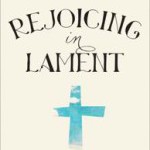 Rejoicing in Lament: Wrestling with Incurable Cancer & Life in Christ by Todd Billings. We need more books like this one: theologically rich, biblically insightful, and pastorally wise treatment of a sensitive subject. I read Rejoicing in Lament with a church member who just lost a child and Billings’ has been a wonderful companion through the pain. He rightly wants to restore a biblical place for lament in the Christian life and eloquently models faithful lamentation. Quite possibly—for me at least—the greatest parts of the the book are when Billings reflects on how to best care for those going through cancer and facing immanent death. Rejoicing in Lament is a brave book that I’d love to see everyone read.
Rejoicing in Lament: Wrestling with Incurable Cancer & Life in Christ by Todd Billings. We need more books like this one: theologically rich, biblically insightful, and pastorally wise treatment of a sensitive subject. I read Rejoicing in Lament with a church member who just lost a child and Billings’ has been a wonderful companion through the pain. He rightly wants to restore a biblical place for lament in the Christian life and eloquently models faithful lamentation. Quite possibly—for me at least—the greatest parts of the the book are when Billings reflects on how to best care for those going through cancer and facing immanent death. Rejoicing in Lament is a brave book that I’d love to see everyone read.
 Dallas, 1963 by Bill Minutaglio and Steven Davis. I seem to increasingly have an armchair historian’s interest in the 1960s. The Cold War drama, Camelot-Court-like White House, Civil Rights movement, and general sociological upheaval is quite engrossing. Dallas, 1963 analyzes all of these things as they came to a boiling point in my backyard. The book starts well by promising to recount the political atmosphere of the city where Kennedy would be assassinated. The authors’ initial return on their promise is fascinating, but soon it devolves into some strange liberal fascination with General Edwin Walker—as if Walker was the typological Texan.
Dallas, 1963 by Bill Minutaglio and Steven Davis. I seem to increasingly have an armchair historian’s interest in the 1960s. The Cold War drama, Camelot-Court-like White House, Civil Rights movement, and general sociological upheaval is quite engrossing. Dallas, 1963 analyzes all of these things as they came to a boiling point in my backyard. The book starts well by promising to recount the political atmosphere of the city where Kennedy would be assassinated. The authors’ initial return on their promise is fascinating, but soon it devolves into some strange liberal fascination with General Edwin Walker—as if Walker was the typological Texan.
Don Graham, professor of history at the University of Texas, is spot on when he says, “Minutaglio and Davis are like a team of U.N. inspectors visiting a country where buried canisters of noxious verbal gas have been left behind for a new generation to discover and, if they’re of a sufficiently liberal mind, to savor how bad those days were, how much hatred there was in Dallas. But the streets of the city that day in November were packed with thousands of people — estimates run to more than 100,000 — who didn’t hate at all, who were excited to see the president and his beautiful wife and who lived in that other Dallas that [the authors are not] much interested in.”
 Natchez Burning by Greg Iles. Natchez Burning was my favorite fiction book of 2014. I recently read it again in preparation for the trilogy’s second installment, which landed last week. And it was as good as ever on a second read. Full of tension, historical interest, Civil Rights drama, and page-turner mystery, this book is a fantastic summer read. I can only hope the second volume keeps this trilogy’s literary train flying down the tracks . . . bring on The Bone Tree.
Natchez Burning by Greg Iles. Natchez Burning was my favorite fiction book of 2014. I recently read it again in preparation for the trilogy’s second installment, which landed last week. And it was as good as ever on a second read. Full of tension, historical interest, Civil Rights drama, and page-turner mystery, this book is a fantastic summer read. I can only hope the second volume keeps this trilogy’s literary train flying down the tracks . . . bring on The Bone Tree.
Click here to find other entries in the Recent Reads series.
Is Church Polity Relevant Today?
On April 22nd Westminster Theological Seminary and Banner of Truth hosted an “Evening Discussion on The Bride of Christ” in honor of Banner’s new edition of James Bannerman’s classic The Church of Christ. Watch the videos below and then go buy a copy of the book.
“Bannerman’s Church of Christ: A Tract for Our Times” by Rev. Dr. Carl Trueman
“Does the Bible Speak to Church Government?” by Dr. Jonathan Leeman
“Why Read Bannerman? Polity, Presbytery, and a Cautionary Tale” by Mr. Nathan Sasser
Panel Discussion on the Bride of Christ, with Garner, Trueman, Leeman, and Sasser
Multiplying Hallelujahs
Sing of His Love
As David selected a few choice stones for battle, so pastors select a few choice songs each week he and his congregation can hurl against the kingdom of darkness. He needs songs sharp in truth and strong in melody. One valuable weapon-like melody is Samuel Trevor Francis’ “O the Deep, Deep Love of Jesus.” In three short verses Francis manages to visualize the immense love of Christ for His church—a love which bought His people and beat the Devil.
When Crossing the Thames
Francis was born on November 19, 1834, in a village north of London. Having a artist for a father meant Francis developed early on a love and gift in poetry. In time he came to love music and joined the church choir at the age of nine. Yet, just like so many throughout the ages, Francis proceeded to spiritually wander through his teenage years.
One day, as he later wrote, “I was on my way home from work and had to cross Hungerford Bridge to the south of the Thames. During the winter’s night of wind and rain and in the loneliness of that walk, I cried to God to have mercy on me. I stayed for a moment to look at the dark waters flowing under the bridge, and the temptation was whispered to me: ‘Make an end of all this misery.’ I drew back from the evil thought, and suddenly a message was borne into my very soul: ‘You do believe in the Lord Jesus Christ?’ I at once answered, ‘I do believe,’ and I put my whole trust in Him as my Savior.”
Samuel Francis cultivated a deep, deep love for the Savior, joining a local body of believers, preaching the gospel at revivals, and leading worship. He later went on to write this powerful hymn, and he continued to fight the good fight, finishing well the race set before him—after ninety-two years.
A Moving Melody
“O the Deep, Deep Love of Jesus,” Francis’ most famous hymn, is set to an appropriately rolling melody called “Ton-Y-Botel” (“Tune in a Bottle”) because of a legend that it was found in a bottle along the Welsh coast. It was actually composed by Thomas J. Williams and first appeared in a 1890 Welsh hymnal entitled Llawlyfn Moliant.
Here are three different recordings of the great hymn—one with the traditional melody, the other with a more contemplative arrangement by Bob Kauflin.
LYRICS
VERSE 1
Oh the deep, deep love of Jesus
Vast, unmeasured, boundless, free
Rolling as a mighty ocean
In its fullness over me
Underneath me, all around me
Is the current of Your love
Leading onward, leading homeward
To Your glorious rest above
CHORUS (Kauflin arrangement)
Oh the deep, deep love
All I need and trust
Is the deep, deep love of Jesus
VERSE 2
Oh the deep, deep love of Jesus
Spread His praise from shore to shore
How He came to pay our ransom
Through the saving cross He bore
How He watches o’er His loved ones
Those He died to make His own
How for them He’s interceding
Pleading now before the throne
VERSE 3
Oh the deep, deep love of Jesus
Far surpassing all the rest
It’s an ocean full of blessing
In the midst of every test
Oh the deep, deep love of Jesus
Mighty Savior, precious Friend
You will bring us home to glory
Where Your love will never end
The Expositor Podcast
Steve Lawson recently launched One Passion Ministries which looks to be a treasure trove for modern expositors.
OnePassion is committed to training pastors in expository preaching that is firmly anchored in proclaiming God’s Word. We live in a day in which there is a famine in the land for the hearing of God’s Word. In response to this spiritual drought, this ministry is devoted to calling those who stand in pulpits to the high standard of biblical preaching. If we are to see a new reformation in this day, there must, first, be a reformation of the pulpit. Only then can the church experience transcendent worship, authentic godliness, and true evangelism.
Our goal is to provide as many free audio, video and written materials as possible, along with charging minimal for other resources. In return for these materials, ministry donations are appreciated to further these efforts and continue to provide complimentary resources.
One of these complimentary resources is the “Expositor Podcast.” Hosted by Dr. Lawson, “Expositor” provides an informal look into the life and ministry of the expositor. Three times a week Dr. Lawson offers 6-8 minutes snapshots on a variety of matters pertaining to faithful expository ministry.
Subscribe to Expositor or listen to recent episodes here.
The Danger of Distraction
Our second son, Owen Paul, is such a joy in our home. He is never short on imagination or personality. For so long the first thing he’s done after waking up each morning is put on a Buzz Lightyear costume that I’ve taken to calling him, “Buzz” all the time. One of Buzz’s current traits is that he can easily become distracted. We set him off to clean his room or do some chore, and he seemingly disappears for an unusual amount of time. We eventually find him preoccupied with something—usually a toy or game—other than what he was supposed to be doing.
The Concentration of Faithful Ministry
Something quite similar is happening in Acts 6. The apostles’ preoccupation with serving tables is endangering their original marching orders from Christ. What should the apostles be giving their time to? Look at 6:4, “But we will devote ourselves to prayer and to the ministry of the word.”
If 6:2-3 give us insight into what a healthy deacon body looks like, 6:4 gives us the priorities of pastoral ministry: praying and preaching. To read the rest of the New Testament, particularly the pastoral letters to Timothy and Titus, is to see this bear out. Faithful pastors and elders are those devoted, like the apostles they emulate to some degree, “ourselves to prayer and to the ministry of the word.”
If the great danger threatening the church in this passage was distraction—distraction from occupying their ministry with that which is of first importance. And this Satanic scheme makes so much sense doesn’t it? If faith comes by hearing and preaching is the ordinary way God gives life to His people and grows His church, why wouldn’t the Enemy want to distract pastors from praying and preaching? Why wouldn’t he want to distract some of you from devoting yourselves to the praying and preaching ministry of the church each week in gathered worship? A distracted church is a powerless church.
We will devote “ourselves to prayer and to the ministry of the word.” Oh, how we can’t—I can’t—forget the first side of the apostle’s devotion. Charles Bridges, in his classic work The Christian Ministry, wrote, “‘The spirit of our ministry is a spirit of prayer.’ Prayer is the ornament of the priesthood, the leading feature of our character. Without prayer, the minister is of no use to the church, nor of any advantage to mankind . . . It is prayer alone that gives the whole strength and efficacy to our different administrations . . . Prayer therefore is one half of our ministry; and it gives to the other half all its power and success.” I am incredibly thankful to serve in a church where preaching is valued, encouraged, and prayed for. I frequently get text messages and emails from you expressing encouragements about and prayers for this pulpit. From Acts 6:4 let me also ask, as I’m sure you are doing, to not forget to pray that your elders would be men of prayer.
A Biblical Pattern
Few things bring greater anxiety and expected stress in my life than returning home with self-assembly furniture . . . particularly from Ikea. Their “how-to/assembly” guides have no words, just pictorial steps that cause non-mechanical people like me to labor and toil far too long on a piece of furniture that sure looks like it should come together in a matter of minutes—not a matter of hours. From my perspective, the builder and the building guide cannot be trusted.
It seems to me that Satan wants us to believe something similar when it comes to the church: that the builder and the building guide cannot be trusted. Yet, the first seven verses of Acts 6 announce the builder (Jesus) and the building guide (His Word) are worthy of full trust—of total devotion. We can delight in and rest on the pattern of ministry according to Acts 6:1-7 Jesus’ promise that He will build His church (Matt. 16:18) through His word (Eph. 5:26).
As we conclude I want to point out a few pillars, according to Acts 6, of a church living in a faithful pattern of ministry.
Pillars of Faithful Ministry
A Word-centered ministry. I’m sure we’ve said enough on this point already, but the labor of ministry is to always keep God’s word at the center. The greatest threat to healthy ministry is anything that steals the centrality of the word—for the Word brings life and power to God’s people.
A Spirit-empowered ministry. To read the book of Acts to see a church empowered by God’s Spirit. A constant key to perpetuating unity and delight in a local church is members growing in the fullness of the Spirit. Is there anywhere in your life where you sense growing power from the spirit? It seems that few things test out the true spirit of a church as there life of prayer. Prayer-filled churches are Spirit-empowered churches.
A compassion-saturated ministry. Some people think the apostles acts in this text as though compassionate care of the widows is unimportant. But that’s not the case at all. They lead the church to ensure the widows needs are met. Devotion to God’s word is never severed from compassion towards God’s people.
A gospel-advancing ministry. We keep the Word central, long for the Spirit’s power, and fill our hearts with compassion in order to see the gospel advance in our lives, church, city, and world.
This then is the pattern of ministry we must pursue. One centered on God’s word, empowered by God’s spirit, saturated with compassion for one another, and advancing the gospel for God’s glory in all nations.
This post is adapted from my recent sermon, “The Pattern of Ministry,” on Acts 6:1-7.
Preaching is Terrifyingly Thrilling
“For [Barth], no intellectual pursuit could possibly match the thrill and the terror of the bold and audacious venture to speak about God.” – Marsh, Strange Glory, 53.
7 Books to Look For
Every so often I scour the “Coming Soon” lists from evangelical publishing houses to see if there’s anything worthy of anticipation. My most recent search turned up seven soon-to-be-published titles I think are of unique interest to ordinary pastors—to read and/or pass around in their churches.
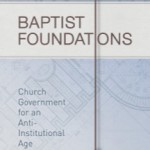 Baptist Foundations: Church Government for an Anti-Institutional Age edited by Mark Dever and Jonathan Leeman. Today is an anti-polity age, perhaps more than any other time in the history of the church. Yet polity remains as important now as it was in the New Testament church. Right polity strengthens Christians and their ties to one another. It is the platinum prongs that hold the diamond of the gospel in place, protecting the gospel from one generation to the next. Wrong polity, on the other hand, weakens Christians and their ties. It leaves heresies and hypocrites unchecked. It lets hurting sheep wander off and fall into canyons. It loosens the prongs so that the diamond of the gospel eventually falls to the ground and gets lost.
Baptist Foundations: Church Government for an Anti-Institutional Age edited by Mark Dever and Jonathan Leeman. Today is an anti-polity age, perhaps more than any other time in the history of the church. Yet polity remains as important now as it was in the New Testament church. Right polity strengthens Christians and their ties to one another. It is the platinum prongs that hold the diamond of the gospel in place, protecting the gospel from one generation to the next. Wrong polity, on the other hand, weakens Christians and their ties. It leaves heresies and hypocrites unchecked. It lets hurting sheep wander off and fall into canyons. It loosens the prongs so that the diamond of the gospel eventually falls to the ground and gets lost.
What then is a right or biblical polity? In this volume, representatives of several North American Baptist seminaries and a Baptist university make the exegetical and theological case for a Baptist polity. Right polity, they argue, is congregationalism, elder leadership, diaconal service, regenerate church membership, church discipline, and a Baptist approach to the ordinances.
 Caring for Widows: Ministering God’s Grace by Brian Croft and Austin Walker. Pastors and church leaders are responsible for countless things. Unfortunately, in many churches, ministry to widows remains largely neglected and forgotten.
Caring for Widows: Ministering God’s Grace by Brian Croft and Austin Walker. Pastors and church leaders are responsible for countless things. Unfortunately, in many churches, ministry to widows remains largely neglected and forgotten.
Highlighting the Bible’s recurring commands to care for widows with sensitivity and compassion, this book encourages church leaders to think carefully about how to serve the widows in their congregations and suggests practical strategies to that end. In part 1, the authors summarize the Bible’s consistent teaching regarding the care of widows. In part 2, the authors offer hands-on counseling and a host of practical suggestions related to ensuring that widows receive the support and encouragement they need to thrive in the church.
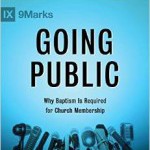 Going Public: Why Baptism is Required for Church Membership by Bobby Jamieson. Does everyone who joins a local church need to be baptized? What should churches that practice believer baptism do about those who were “baptized” as infants? This is a live question for many churches today, and it raises a host of other crucial questions: What is the meaning and function of baptism? Does baptism have any inherent relationship to the local church? How do baptism and the Lord’s Supper fit together? What exactly is “church membership”?
Going Public: Why Baptism is Required for Church Membership by Bobby Jamieson. Does everyone who joins a local church need to be baptized? What should churches that practice believer baptism do about those who were “baptized” as infants? This is a live question for many churches today, and it raises a host of other crucial questions: What is the meaning and function of baptism? Does baptism have any inherent relationship to the local church? How do baptism and the Lord’s Supper fit together? What exactly is “church membership”?
To answer the question of whether baptism is required for church membership, Going Public seeks to rebuild ecclesiological foundations, digging deep into the Bible’s teaching on baptism, the Lord’s Supper, and church membership. Bobby Jamieson describes how baptism and the Lord’s Supper transform a scattered group of Christians into a gathered local church. It traces the trajectory of a church’s birth, how gospel people form a gospel polity.
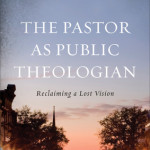 The Pastor as Public Theologian: Reclaiming a Lost Vision by Kevin Vanhoozer and Owen Strachan. Many pastors today see themselves primarily as counselors, leaders, and motivators. Yet this often comes at the expense of the fundamental reality of the pastorate as a theological office. The most important role is to be a theologian mediating God to the people. The church needs pastors who can contextualize the Word of God to help their congregations think theologically about all aspects of their lives, such as work, end-of-life decisions, political involvement, and entertainment.
The Pastor as Public Theologian: Reclaiming a Lost Vision by Kevin Vanhoozer and Owen Strachan. Many pastors today see themselves primarily as counselors, leaders, and motivators. Yet this often comes at the expense of the fundamental reality of the pastorate as a theological office. The most important role is to be a theologian mediating God to the people. The church needs pastors who can contextualize the Word of God to help their congregations think theologically about all aspects of their lives, such as work, end-of-life decisions, political involvement, and entertainment.
Drawing on the depiction of pastors in the Bible, key figures from church history, and Christian theology, this brief and accessible book offers a clarion call for pastors to serve as public theologians in their congregations and communities. The church needs pastors to read the world in light of Scripture and to direct their congregations in ways of wisdom, shalom, and human flourishing. The Pastor as Public Theologian calls for a paradigm shift in the very idea of what a pastor is and does, setting forth a positive alternative picture.
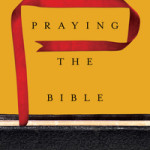 Praying the Bible by Don Whitney. All Christians know they should pray, but sometimes it’s hard to know how—especially if the minutes start to drag and our minds start to wander. Offering readers hope, encouragement, and the practical advice they’re looking for, this concise book by professor Donald Whitney outlines a simple, time-tested method that can help transform our prayer lives: praying the words of the Bible. Praying the Bible shows readers how to pray through portions of Scripture one line at a time, helping us stay focused by allowing God’s Word itself to direct our thoughts and words. Simple yet profound, this resource will prove invaluable to all Christians as they seek to commune with their heavenly Father in prayer each and every day.
Praying the Bible by Don Whitney. All Christians know they should pray, but sometimes it’s hard to know how—especially if the minutes start to drag and our minds start to wander. Offering readers hope, encouragement, and the practical advice they’re looking for, this concise book by professor Donald Whitney outlines a simple, time-tested method that can help transform our prayer lives: praying the words of the Bible. Praying the Bible shows readers how to pray through portions of Scripture one line at a time, helping us stay focused by allowing God’s Word itself to direct our thoughts and words. Simple yet profound, this resource will prove invaluable to all Christians as they seek to commune with their heavenly Father in prayer each and every day.
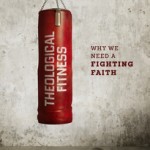 Theological Fitness: Why We Need a Fighting Faith by Aimee Byrd. Your spiritual life should be a battle! The writer of Hebrews tells us to “hold fast to the confession of our hope without wavering” (10:23 ESV). What (and whom) do we need to meet this challenge? How does simply “holding fast” turn into such a workout of faith? Author and blogger Aimee Byrd invites us to join her in some “theological fitness” training as she unpacks our call to perseverance and explores the great metaphor that physical fitness lends to theology. Learn about the “fighting grace” God has given us, and discover how we are equipped to live lives of obedience even amidst the suffering and irritations of ordinary life.
Theological Fitness: Why We Need a Fighting Faith by Aimee Byrd. Your spiritual life should be a battle! The writer of Hebrews tells us to “hold fast to the confession of our hope without wavering” (10:23 ESV). What (and whom) do we need to meet this challenge? How does simply “holding fast” turn into such a workout of faith? Author and blogger Aimee Byrd invites us to join her in some “theological fitness” training as she unpacks our call to perseverance and explores the great metaphor that physical fitness lends to theology. Learn about the “fighting grace” God has given us, and discover how we are equipped to live lives of obedience even amidst the suffering and irritations of ordinary life.
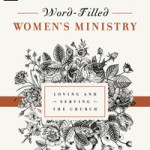 Word-Filled Women’s Ministry: Loving and Serving the Church edited by Gloria Furman and Kathleen Nielson. The Bible is clear that women as well as men are created in God’s image and intended to serve him with their lives. But what does this look like for women in the church? Helping church leaders think through what a Bible-centered women’s ministry looks like, this collection of essays by respected Bible teachers and authors such as Gloria Furman, Nancy Guthrie, and Susan Hunt addresses a variety of topics relevant to women. Whether exploring the importance of intergenerational relationships, the Bible’s teaching on sexuality, or women’s roles in the church and the home, this book of wise teaching and practical instruction will become a must-have resource for anyone interested in bolstering the health and vitality of Christian women in the context of the local church.
Word-Filled Women’s Ministry: Loving and Serving the Church edited by Gloria Furman and Kathleen Nielson. The Bible is clear that women as well as men are created in God’s image and intended to serve him with their lives. But what does this look like for women in the church? Helping church leaders think through what a Bible-centered women’s ministry looks like, this collection of essays by respected Bible teachers and authors such as Gloria Furman, Nancy Guthrie, and Susan Hunt addresses a variety of topics relevant to women. Whether exploring the importance of intergenerational relationships, the Bible’s teaching on sexuality, or women’s roles in the church and the home, this book of wise teaching and practical instruction will become a must-have resource for anyone interested in bolstering the health and vitality of Christian women in the context of the local church.



